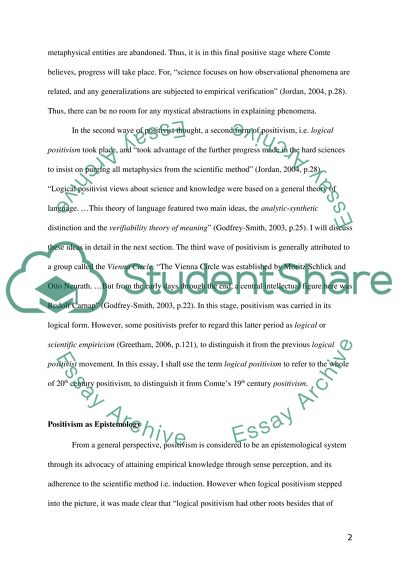Cite this document
(“Positivism as an Epistemological System Essay Example | Topics and Well Written Essays - 1500 words”, n.d.)
Retrieved from https://studentshare.org/social-science/1409532-positivism-as-an-epistemological-system
Retrieved from https://studentshare.org/social-science/1409532-positivism-as-an-epistemological-system
(Positivism As an Epistemological System Essay Example | Topics and Well Written Essays - 1500 Words)
https://studentshare.org/social-science/1409532-positivism-as-an-epistemological-system.
https://studentshare.org/social-science/1409532-positivism-as-an-epistemological-system.
“Positivism As an Epistemological System Essay Example | Topics and Well Written Essays - 1500 Words”, n.d. https://studentshare.org/social-science/1409532-positivism-as-an-epistemological-system.


